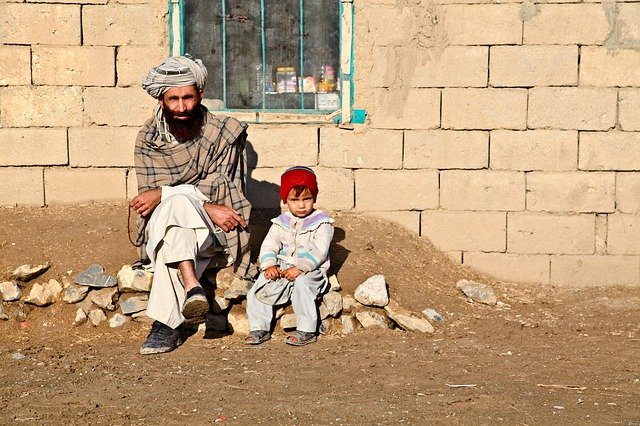
A few years ago, I traveled to Michigan to visit one of our church’s teams serving among an unreached people group. I was looking forward to catching up with the families, bringing encouragement, and providing a small change to their routines. The Spirit was doing some exciting things. I was eager to return to the area, as it had been a couple of years since my last visit.
After I arrived, one of the team members shared that a refugee family had been living with a U.S. family for six weeks as they awaited the final details of their permanent lodging. They were from Afghanistan, Muslims, but grateful to receive hospitality from a Christian family in the community. The family of five had no place to stay, but somehow (I do not recall the details.) this U.S. family heard of their needs and offered to serve them with words and deeds.
I was told a house had been located for them, but they would need assistance getting their belongings to the new location. A few of us were needed to help move luggage. We changed our plans and prepared for the move.
The host family wanted to encourage their guests before their departure. I suggested we order lunch from a Middle Eastern restaurant. Given my penchant for such cuisine, that may have been a little selfish–but I did cover the bill. 🙂
About fifteen of us gathered in a living room/dining area to share a meal. We gave thanks, in the name of Jesus, for the food and prayed for blessing on this family in their new location. It was a bitter-sweet time.
This beautiful family had been in the States for six weeks, having arrived from Afghanistan. The father had been a successful businessman. The mother had worked part-time at a bakery. The two younger children were pre-teens. The oldest daughter was around twenty years old. She had been an interpreter for the U.S. military and was fluent in English. The other children had much less language learning. The parents could not speak at all.
They were composed and friendly despite the tragedies they had experienced. Through the eldest daughter, we shared stories of life and culture, laughed together, and answered questions.
Soon it was time for the move. For six weeks, this family of five had been living in a single-room, loft in the house. Everything they owned in the world was limited to 12-15 suitcases. We loaded our vehicles with their belongings, drove them to their new location, and moved them into their new home.
I reflected with our team on that day’s experience:
My wife and I had three children, two daughters and a son. It was impossible to comprehend what they had experienced. The father and mother had lost their means to provide for their children. Their professions were gone. Their social status was gone. They were now limited to communicating through their child. They could not read a menu, pay a bill, or ask for directions without her help. All of their lives, they had been the providers and caregivers, now the roles had been changed in an instant.
My family had moved a few times, but nothing to the extent of this family. The social upheaval was tremendous. Familiar faces were gone. The children now had to make new friends with people who did not speak their language. They had been insiders, now they were outsiders. They were placed in school, but reduced to preforming at a level far below where they had been two months prior. When we moved, a semi-truck carried much of our possessions. This family had to leave behind a home, vehicles, furniture, and other material goods that could not be transported in their luggage.
I recognize the present conversations swirling regarding the settlement of Afghans are heated and contentious. There are many important questions and concerns being raised by people on both sides of the debate. Much is at stake. While there is need for such discussion, this post was written to contribute little to the debate. I wrote this simply to share a story and draw attention to future Kingdom opportunities. Regardless of the fallout from the Afghan crisis, people are on the move, many fleeing for their lives. Among migrants, asylum-seekers who eventually receive refugee status are the neediest of the neediest. Most have lost everything (tangibles and intangibles). Most want to return to their lands of birth.
Regardless of the push-pull factors that move people throughout the world, we must remember a divine mission is unfolding. We read in Acts “and he made from one man every nation of mankind to live on all the face of the earth, having determined allotted periods and the boundaries of their dwelling place, that they should seek God” (Acts 17:26-27). Our Father is the Divine Maestro who orchestrates the movement of the nations that they may find Him. As people who serve the needy and have a message of hope for the hopeless, a message of good news for those who believe such is fiction, do we see the opportunities to welcome those around us–regardless of how they arrive next door?
